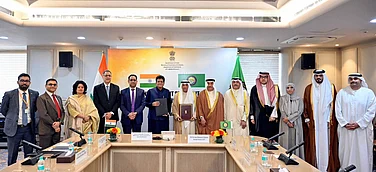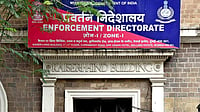The much-awaited Supreme Court judgment on marriage equality was delivered by the constitution bench of the Supreme Court on the 17th of October, 2023. Over a span of weeks, attorneys have traded jabs on the extent of Indian marriage rules and whether they could include partnerships between members of the LGBTQ+ community in their compass. Questions regarding other civil rights, such as those related to inheritance, adoption, and property rights, as well as more banal issues that many of us take for granted, such as nominees for insurance, bank accounts, medical claims, etc., arose as a result of the recognition of the institution of marriage.
The Court posed the following questions: whether there is a fundamental right to marriage; whether the words in the Special Marriage Act could be given a gender-neutral meaning; whether a civil union could be recognised under Indian law; and whether the State could be obligated by law to recognise the relationship.
The Supreme Court unanimously observed that the responsibility of establishing laws belongs to Parliament, which is the right way to go around the issue of marriage equality. The court did not legislate marriage equality. In order to do that, various laws would need to be amended, which is the realm of the people's elected representatives, not a select few jurists. It is horrifying to envision the tyranny of these few over the lives of millions on any given subject in a country that still clings to the remnants of democracy. This was never a matter to be contested in court but rather one that required careful consideration and a thorough grasp of the legislative changes required to give LGBT individuals relationship rights.
This kind of endeavour necessitates the hard work of engaging with the larger diverse queer community, understanding our priorities and needs, amplifying our realities, strategically thinking about how we can be represented, and sensitising and advocating with those in positions of power whose understandings need to be improved. This is a time-consuming, collaborative effort, but nothing good comes easily. Most of us in the LGBT community are well aware of this, having battled for decades to remove Section 377 from India.
Nowhere in the world where homosexuality has been decriminalised has marriage equality been implemented within five years. Indeed, even after civil partnership rights for LGBT individuals have been recognised, it might take many years for marital rights to be awarded. Expecting such a quick transformation in India - an even more complicated situation given personal laws - was unrealistic. And expecting the Supreme Court to guarantee marital equality in such a situation was, at best, naive. After hearings in the case, any astute reading of the bench should have seen that a claim for marital equality was not in the cards.
The Supreme Court's decision has been unsatisfactory not because it opposes marital equality but because it does not go far enough in other areas. For example, the court's refusal to recognise discriminatory acts against LGBT live-in relationships as actionable claims while blaming the legislature is a failure to perform judicial scrutiny. One of the most important issues that the Supreme Court failed to examine was the Fundamental Right to Marry.
The Court's request that the government form a committee to investigate the matters presented before it shows the court’s disagreement on the issues brought in front of it. While the court provides some clarification on the scope and composition of this forum, it does not provide a timeline. Remember this: In 2018, the same court urged the State to "ensure that this judgment is given wide publicity through the public media... at regular intervals, and initiate programs to reduce and eventually eliminate the stigma" against LGBT people.
Furthermore, it is imperative that "above all, all government officials, including and in particular police officials … be given periodic sensitisation and awareness training of the plight" of lesbian, gay, and bisexual individuals. Nothing has been done in this regard five years later. There is no reason to think that a committee to investigate LGBT equality claims will be formed and made genuinely effective. Additionally, and most importantly, all government officials—including and especially police officials—should get regular training to increase their knowledge of the predicament of LGBTQ people.
The Court expects the State to step up and display the best of its instincts as well as the full scope of its responsibilities as a defender of the marginalised. The Court states unequivocally that all types of violence against LGBTQ individuals are widespread and that they are entitled to the protection of the State, which is also responsible for their prevention. Indeed, it orders the police apparatus to adopt numerous actions, including not harassing people because of their queerness or forcing them to return to violent natal families.
The court also considers forced mutilation of intersex people, as well as sexual orientation conversion and gender identity 'treatments,' to be acts of violence and orders the government to put an end to them immediately. This lifeline is crucial in the lives of many LGBTQ persons. However, full implementation requires the entire weight of the state.
The information gathered and provided before the Court is only a small portion of what exists to illustrate the inequity and violence that gay people suffer on a daily basis. Whether or not a committee is formed, it is critical that we supplement this data and utilise it to argue for equity so that even the sceptics see the need for change. Here, the Court advises where our energy should be directed - not only at the Union government level but also where there may be room for collaboration with state governments to promote progressive reform. The ball has been handed not just to the lawmakers but also to the queer community, who must band together and work together on a long but likely fruitful route.
(Kumar Kartikeya is a legal researcher.)





















